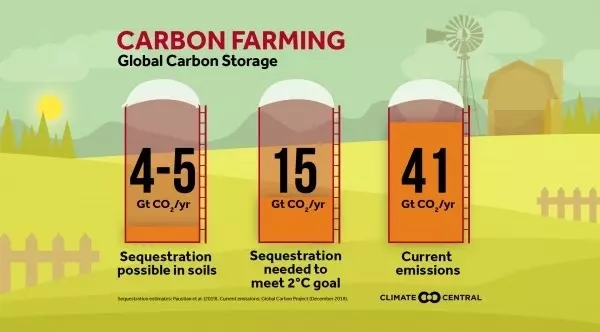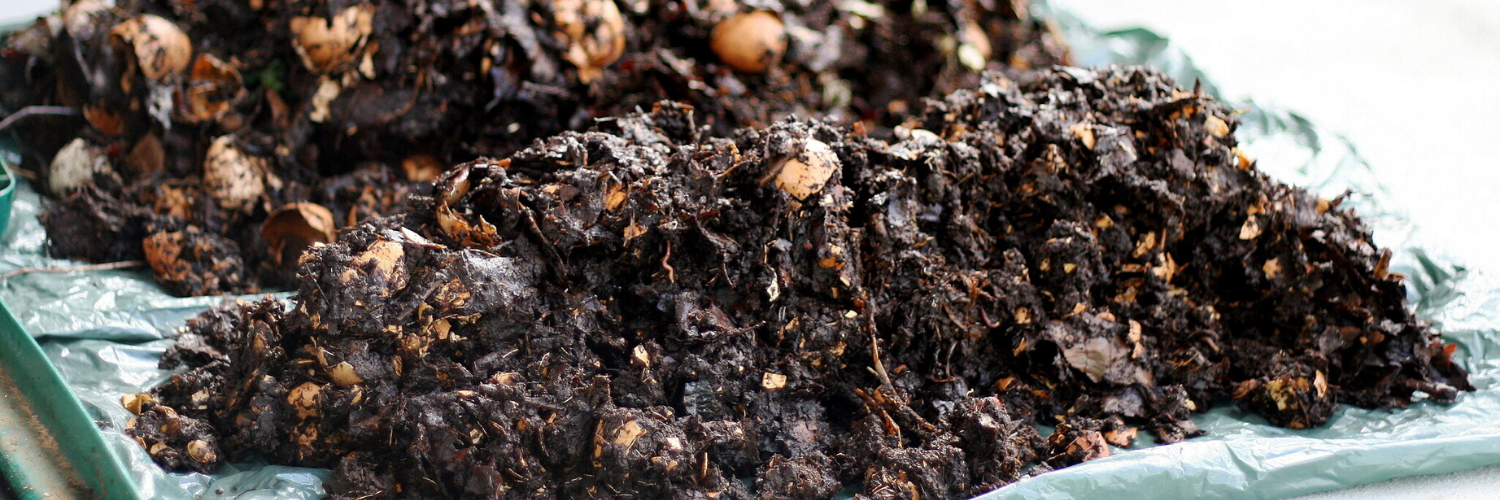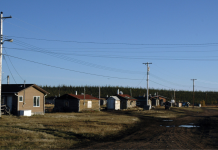Written by: Poornima Parameswaran
Farmers are the stewards of our planet’s precious soil, one of the least understood and untapped defenses against climate change. Because of its massive potential to store carbon and foundational role in growing our food supply, soil makes farming a solution for both climate change and food security.
The threat to food security
Farming is capital-intensive and farmers are at the mercy of volatile global commodity markets, trade disputes, regulatory changes, weather, pests, and disease. Factor in climate change and you can include droughts, floods and temperature shifts.
We need to change how we grow our food because:
- climate change will increasingly impact farm yields
- how we farm can help mitigate climate change
- helping our farmers unlock the full potential of soil will help them meet growing food demands while remaining profitable
- restoring the carbon-holding potential of our soil combats climate change.
Soil and climate change
The last few years have been among the hottest on record. As of May 2020, the concentration of carbon dioxide (CO2) in our atmosphere has been the highest it’s been in human history.
Studies show that soil removes about 25 percent of the world’s fossil-fuel emissions each year. This is done through carbon sequestration, a natural way of removing CO2 from the atmosphere through the soil with fewer impacts on land and water, less need for energy, and lower costs.
Soil can take in more CO2 from the atmosphere than it releases, making it a carbon sink. The carbon sink capacity of the world’s agricultural and degraded soils is 50 to 66 percent of what it has been historically. This means our soil can hold 42 to 78 gigatonnes more carbon. Increasing the amount of carbon in soil also makes it more productive for farmers.

Credit: Carbon Central, 2019
Soil is also a method for water retention and purification, and returns oxygen to the atmosphere through plants. A single tablespoon of soil contains billions of microorganisms. In other words, the soil is alive. If care for the soil on our farms it will greatly return the favour by providing us with the fibre, fuel and food we need, all while removing CO2 from the atmosphere.
Farming with attention to the soil
- Carbon-smart farming: The amount of carbon sequestered in our soils can be increased by adopting the right management practices. Reducing tillage, planting cover crops and using organic matter amendments such as compost have been shown to increase the amount of carbon stored in the soil. Soil carbon also performs double duty as a resource in ensuring food security. Farmers can harness the power of carbon stored as soil organic matter, which is the fraction of soil composed of anything that once lived, such as decomposed plant and animal matter. Soil organic matter makes farmland more productive, reduces erosion and improves soil structure, which improves the quality of groundwater and surface waters. All of this reduces the negative impact of climate change across the entire ecosystem.
- Reducing food waste at the farm level: Food waste is a major source of greenhouse gas emissions, contributing 8 percent of total global emissions and at least 2.6 percent of all U.S. emissions. Specifically, a total of one-third of edible produce, or 33.7 percent, remains unharvested in fields only to get buried under. Furthermore, a significant amount of food waste is attributed to loss in crop production due to diseases – a loss of $US200 billion globally per year.
- Where Science & Technology can help: Our lack of understanding of our soil is hurting us. We need help from cutting-edge science and technology to measure and interpret the physical, chemical and biological properties of soil, which is collectively referred to as soil intelligence. Soil intelligence uncovers information such as which pathogens are lurking. It quantifies beneficial nutrients and determines the carbon-holding potential of soil. This information allows farmers to diagnose the health of the soil prior to planting their crops, enabling cost-saving decisions about what types of compost, fertilisers, pesticides, or other treatments to put in their soil, how to irrigate, or whether or not to switch crops entirely and prevent waste.
Every farm is unique and there is no one-size-fits-all approach. There is more biodiversity below ground than above ground. Carbon-smart farming yields comprehensive soil intelligence, which can help farmers and farm advisors “read their soil”, make the right decisions for maximising profits, and reduce waste. This information can help us better understand what the soil needs to feed our planet while continuing to sequester carbon.
Agriculture can significantly decrease humanity’s carbon footprint. We must aid, nurture, and care for our soil so that it can play this pivotal role in our fight against climate change. An investment in our soil now is an investment in the livelihood and health of generations to come.
Header Image Credit: Lindsay/Flickr (CC BY 2.0)
Republished with permission from World Economic Forum







